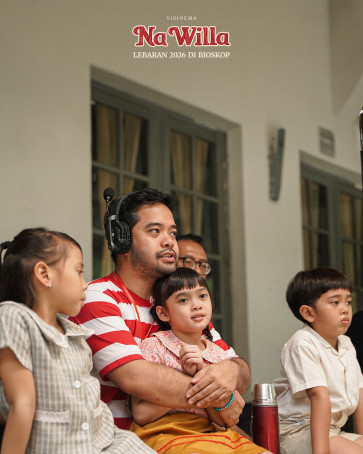“Sleep not so good lah.”
Miss Chen’s voice over the phone seemed to lack its usual energy, easy to miss, unless you’re listening for it. Mei Ling, however, is. She picks it up right away.
“Aiyoh, sorry to hear that, Miss Chen,” she replies, her tone softening into a gentle Singlish lilt.
“Don’t worry lah, maybe can take a short nap later, okay? You eaten already?”
This isn’t a scene from a call center or a clinic. It’s a live demonstration of what Southeast Asia’s first empathetic large language model can do. Mei Ling isn’t human. She’s a virtual caregiver built on MERaLiON, Singapore’s homegrown AI with a heart, or at least, the ability to convincingly approximate one.
Launched in December 2024 and now in its second generation, MERaLiON, short for Multimodal Empathetic Reasoning and Learning in One Network, is more than just another large language model (LLM) in the generative AI boom. Developed by Singapore’s A*STAR I²R and supported by the country’s Infocomm Media Development Authority and National Research Foundation, it's one of the rare few that’s deeply rooted in Southeast Asia. It doesn’t just speak Singlish, Indonesian, Thai, Vietnamese and more of the region’s languages, it also understands the emotional tones that come with them.

Thank you!
For signing up to our newsletter.
Please check your email for your newsletter subscription.
What makes MERaLiON different from a global model like ChatGPT isn’t just language. It’s context. Code-switching, slang, emotional cues, even hesitation, it’s trained to catch all the cultural subtext that would fly over a generic model’s head. It can tell when someone’s frustrated, confused or lonely and adjust accordingly.
A major shift
This shift, from understanding what we say to how we feel when we say it, is a watershed moment.
The technology behind it uses emotionally intelligent algorithms and paralinguistic analysis, drawing on the rhythms and quirks of regional communication styles. In a world where AI has often been accused of dehumanizing our interactions, MERaLiON suggests another path forward: one where machines might help us feel more human, not less.
Backed by a new consortium of 12 industry partners, including Grab, DBS, Microsoft and SPH Media, MERaLiON isn’t just a research project. It’s a national effort to build AI that speaks, listens and feels like us. Its applications range from customer service and education to elderly care and fraud prevention.
The Mei Ling eldercare AI assistant demo was a highlight of the ATxSummit in Singapore in May. Observers watched as the virtual caregiver adapted to emotional shifts in real time, flagged signs of withdrawal and even offered culturally sensitive encouragement. It wasn’t just technically impressive, it felt right.
As one government official said afterward, “It’s not just a prototype. It’s something ready to move.”
For Singapore, it couldn’t come at a better time. By 2030, one in four Singaporeans will be aged 65 or older. Many will live alone. Many caregivers are aging themselves.
Technology like Mei Ling could help ease the burden by triaging daily interactions, flagging those who might need urgent and more focused help and offering seniors a voice that understands theirs. Mei Ling can check in on hundreds of senior citizens every morning, and flag the few dozen cases that human caregivers need to pay closer attention to.
But the implications go far beyond eldercare. Across the world, companies are racing to create AI that can mirror our moods, motivations and mannerisms.
One such example is Kopernica, a system that combines voice, facial expressions, body language and micro-movement tracking to detect stress and even assign personality traits. While its methods are more data-intensive, its aim is the same: to make machines that feel human, not just in what they say, but in how they say it.
Deeper questions
This raises deeper questions. If machines can sound human, do we risk confusing simulation for sincerity? If AI can mimic empathy, is it truly empathetic, or just programmed to perform the right emotion at the right time?
Firman Kurniawan, a digital communication expert at the University of Indonesia, puts it plainly: “AI learns through statistical patterns. Humans learn through culture, lived experience, not data.”
That doesn’t make AI useless. It makes it a mirror. One that reflects not just how we speak, but how we think and where we still fall short.
He reminds us of the Amazon hiring tool that once filtered out female applicants, not because it was malicious, but because it was trained on data riddled with bias.
“AI doesn’t ‘know’ in the human sense,” Firman says.
“It predicts, and its errors expose the gaps in our logic.”
That’s why initiatives like the MERaLiON Consortium matter. They prove that AI’s greatest value isn’t in replacing humanity, but in “in serving people, not sidelining them,” Firman says.
Unlike AI, we can choose to evolve, to question the data, to correct the biases, to feed the system not just with information, but with intention.
“By confronting AI’s shortcomings, we’re forced to confront our own. And in that struggle, we rediscover what makes us human: not just the ability to create, but the courage to rethink,” Firman says.
In the end, the rise of empathetic AI isn’t about replacing human touch. It’s about amplifying it. It’s about creating tools that listen better, respond smarter and connect more deeply. And if we get it right, it could help us rediscover the parts of ourselves we often forget: our compassion, our curiosity, our shared voice.
So maybe the future isn’t a cold, mechanical one after all. Maybe it sounds a little like Mei Ling. Familiar, comforting and human, in all the best ways.
Allestisan Citra Derosa is a writer who often turns personal challenges into stories. She finds comfort working at local pet shops and has a knack for making any space feel like home.























